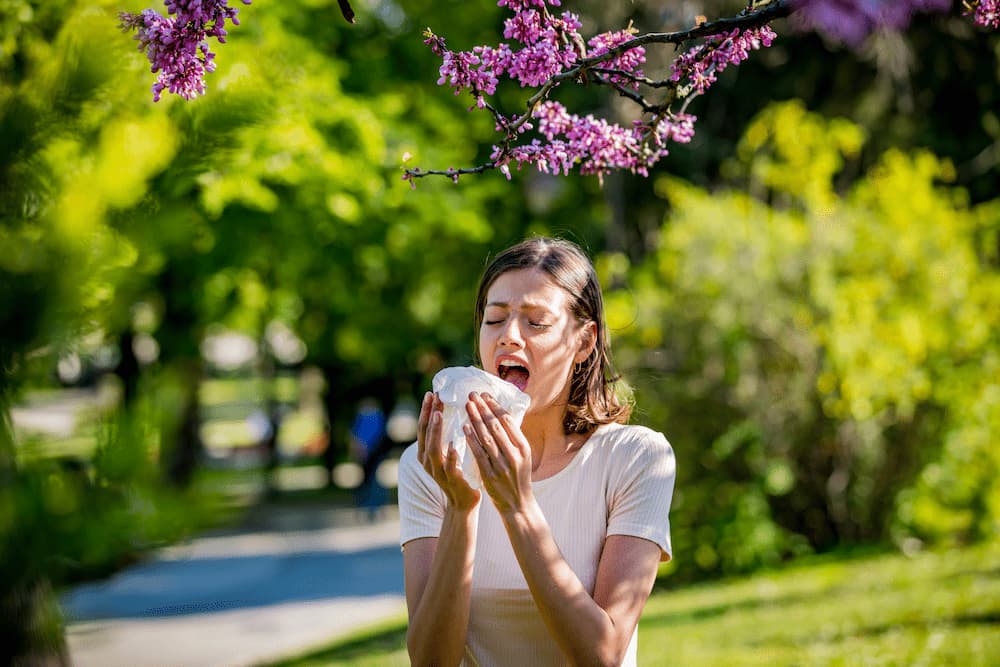
Expert Tips for Surviving Allergy Season
With the changing seasons, many people find themselves dealing with the challenges of seasonal allergies. Blooming flowers mean allergens are often present in the air, ready to trigger uncomfortable symptoms. Knowing how to navigate this time of year is vital for maintaining your health and well-being. This guide offers essential tips for surviving allergy season, covering insights into seasonal allergies, practical prevention strategies, effective treatment options, and guidance on when to seek professional help. Enjoy the beauty of the season without being hindered by allergies,
Understanding Seasonal Allergies
Seasonal allergies are a common condition affecting millions as the seasons change. During spring, when temperatures start to rise, tree pollen is released and can stay present through summer. During the summer allergy season, grass pollen tends to be the main culprit, and can become airborne from late spring through early fall. Weeds, as well as mold spores and dust mites also become more prevalent. These substances can trigger allergic reactions in sensitive individuals, making it essential to understand what to expect.
Allergy symptoms often include sneezing, a runny or stuffy nose, itchy or watery eyes, and even fatigue. These reactions occur when your immune system mistakenly identifies harmless substances as threats, leading to inflammation and discomfort. For some, these symptoms can significantly impact daily activities, making effective strategies for relief crucial.
The root of the problem lies in the immune system's response to allergens. When exposed to these irritants, the body releases histamines and other chemicals, prompting the uncomfortable symptoms associated with allergies. Understanding these triggers can empower you to take proactive measures to mitigate their effects. Learning how to get rid of allergies fast will help you get back to the spring and summer activities you enjoy.
Practical Tips for Preventing Allergy Symptoms
Allergy season can be challenging, but implementing these effective prevention strategies can help you avoid exposure to allergens and significantly reduce your symptoms before they even start.
- Monitor Pollen Count: Check local pollen forecasts and adjust your activities accordingly, staying indoors when counts are high.
- Keep Windows Closed: Shut windows and doors to prevent pollen from entering your home and car. Using air conditioning can help filter out pollen, while regular cleaning of your home will further reduce allergen buildup.
- Use Air Purifiers: Consider using high-efficiency particulate air (HEPA) filters in your heating and cooling systems to trap airborne allergens. Using air purifiers in key rooms, such as the bedroom and living room, can also help create a cleaner environment.
- Stay Indoors: Reduce outdoor activities, especially during peak pollen times (early morning and late afternoon).
Shower at Night: Wash off pollen from your body and hair after spending time outside.
Effective Treatment Options
As allergy season approaches, finding effective treatment options is crucial for managing symptoms and improving quality of life.
Over-the-counter medications can provide immediate relief for many individuals. Antihistamines, decongestants, and nasal sprays are commonly used to alleviate sneezing, runny noses, and itchy eyes. Antihistamines can be effective for reducing symptoms before they start if you take them before your body comes into contact with allergens. These medications are readily available and can be effective for mild to moderate symptoms.
In addition to traditional medications, many people are turning to natural remedies and lifestyle changes to ease allergy symptoms. Staying indoors during high pollen counts, using air purifiers, and regularly cleaning your living space can help reduce exposure to allergens. Incorporating foods rich in omega-3 fatty acids, such as fish and flaxseeds, may also support overall immune health and potentially reduce allergy severity.
For individuals experiencing persistent or severe allergies, it may be time to consider allergy testing and allergy shots (also called immunotherapy). Allergy testing can help identify which specific allergens trigger your body, allowing for more targeted management strategies. Immunotherapy, which involves gradually desensitizing the body to allergens, can provide long-term relief and is often recommended for those with chronic symptoms that do not respond well to standard treatments.
These allergy season tips and treatments can help you understand how to get rid of allergies fast and effectively.
When to Seek Professional Help
Signs that your symptoms require medical attention include:
- severe headaches
- difficulty breathing
- swelling of the face or throat
prolonged nasal congestion or sinus pain.
These symptoms could indicate a more serious allergic reaction or a secondary infection that needs to be addressed promptly.
In addition to recognizing when to seek help, the importance of personalized treatment plans cannot be overstated. Every individual's allergies and responses to treatments can vary significantly. By working with a healthcare provider, you can develop a tailored plan that takes into account your specific triggers, lifestyle, and medical history. This personalized approach not only enhances the effectiveness of the treatment but also helps in minimizing potential side effects. Whether it’s through prescription medications, immunotherapy, or lifestyle adjustments, a professional can guide you toward finding relief, ensuring that you can enjoy the outdoors during allergy season without the burden of your symptoms.



